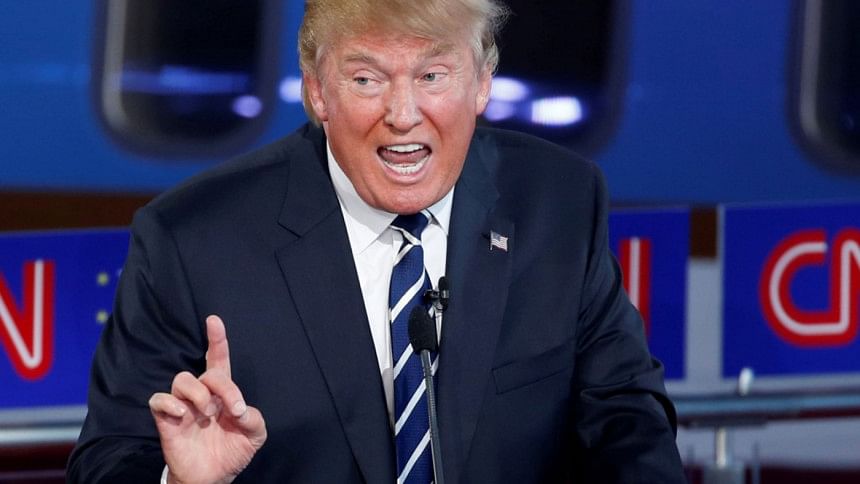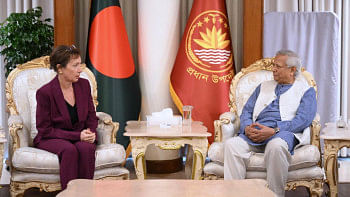US Presidential Election: Unexpected twists or masterly staging of a reality show?

The USA has been in turmoil in recent months with the Black Lives Matter activism, police brutality, countrywide pro-diversity protests, show of strength by right-wing activists (mostly white supremacists), with federal forces using heavy-handed tactics to "restore law and order", and a president seeking divine blessings with the Bible in his hands in front of a church.
But for President Donald Trump, who is now seeking re-election, chaos is order and showmanship is the centrepiece of his election campaign. For him, the priority is not limiting infections and deaths from Covid-19, but rather keeping trade and businesses going. His stand against the use of face masks and lockdowns, his rejection of suggestions given by the country's top health experts, his belittling of the medical profession as well as wrongly promoting dangerous concoctions as cures for the virus have all contributed to pushing the number of Covid-19 deaths in the country to over two lakh. He could have saved thousands of lives by listening to the country's health experts, but he chose not to. This is the most haunting image the president will have to defend himself against in his re-election bid.
Against this backdrop of chaotic social, political and health scenarios, the first US presidential debate, held on September 29, 2020, was unsavoury, to say the least. The president tried to bulldoze his way through the debate by refusing to stop speaking over his opponent, and to go by the agreed format of the presidential debate.
The debate, however, did not go in his favour. Opinion polls show him trailing by 14 percent behind his opponent Joe Biden. The president received scathing criticism from political commentators for his uncivil conduct. His insecurity over his ability to stand up to public scrutiny for failures in handling Covd-19, his unresolved tax issues, and his persistent lies to the America people probably made him act the way he did. It was clear that he intended to leave as little time as possible for Joe Biden for making his points.
The debate, broadcast live on TV all over the world, projected a proud country at its very low. The country which saved the world in the past through timely military and diplomatic interventions, spent billions of dollars as foreign assistance for reconstruction, education, fighting poverty, hunger and diseases like malaria, HIV-AIDS and other deadly disease, led the world's scientific innovation and space exploration, and which remained a great land of freedom and opportunity, was reduced in the eyes of its admirers.
For countries with streaks of dictatorial rule, such run of events could be normal political activities in an election year. But for the USA, these events were almost like a reality show. The president, with his past history of running reality shows, is now taking it to a wider audience, to viewers around the world. The issue is whether he would be able to draw the curtain on a successful show of getting re-elected.
It is quite apparent to most that if the president continues to follow this course in the two forthcoming debates, it would further lower his position in the polls. The options to the president seem to be very limited. What could he possibly do to come out of this hole which he has been digging since the Minneapolis case of police brutality? What could he say to recover his image of epic failure in limiting the infections and deaths of so many Americans?
Unfortunately, no matter how much the president wanted the Covid-19 issues to be pushed to the back burner, he could not do so. Due to the surprisingly lax health screening of staff entering the White House for daily work, and the press core attending news briefs, the deadly virus has invaded the White House. It affected Hope Hicks, Senior Counsellor of the President, and then the President and the First Lady, the campaign manager Bill Stepien, chief of his Press Corps Zeke Miller, and others. It is an unexpected chapter in the drama, and perhaps not a scripted one.
The current health status of the president remains shrouded in a bit of mystery. Although he got himself released from the hospital after three days of treatment, his Covid-19 infection raises the questions: what can be the fallout of this unfortunate event on the 2020 presidential election? Will it go in favour of Trump's re-election bid or will it sink him further? How far can the Trump Campaign limit the damage of his already low reputation due to his inept handling of Covid-19?
Given the imminence of the final voting day for 2020 election (with only about 4 weeks to go), the president and his team would try to spin events as much as possible in his favour, both within the debate hall and outside.
The first debate probably sent a few messages to the president's campaign team: A quieter Trump is a better bet for winning the election than a talking one; his campaign could benefit from some sympathy dividends due to the president's Covid-19 infection; and he could take some time to assess the situation and avoid, if necessary, the repeat of another unsavoury debate. A quieter Trump could salvage some ground lost to Joe Biden after the first debate.
If these ploys succeed in putting him back at the helm of the government for another four years, it will be the masterstroke of the president's showmanship. But the outcome is far from guaranteed. Whatever happens, I think the election will be a cliffhanger.
Dr Atiqur Rahman is an economist, ex-adjunct professor at the John Cabot University, Rome, and ex-Lead Strategist of IFAD, Rome, Italy.

 For all latest news, follow The Daily Star's Google News channel.
For all latest news, follow The Daily Star's Google News channel. 



Comments